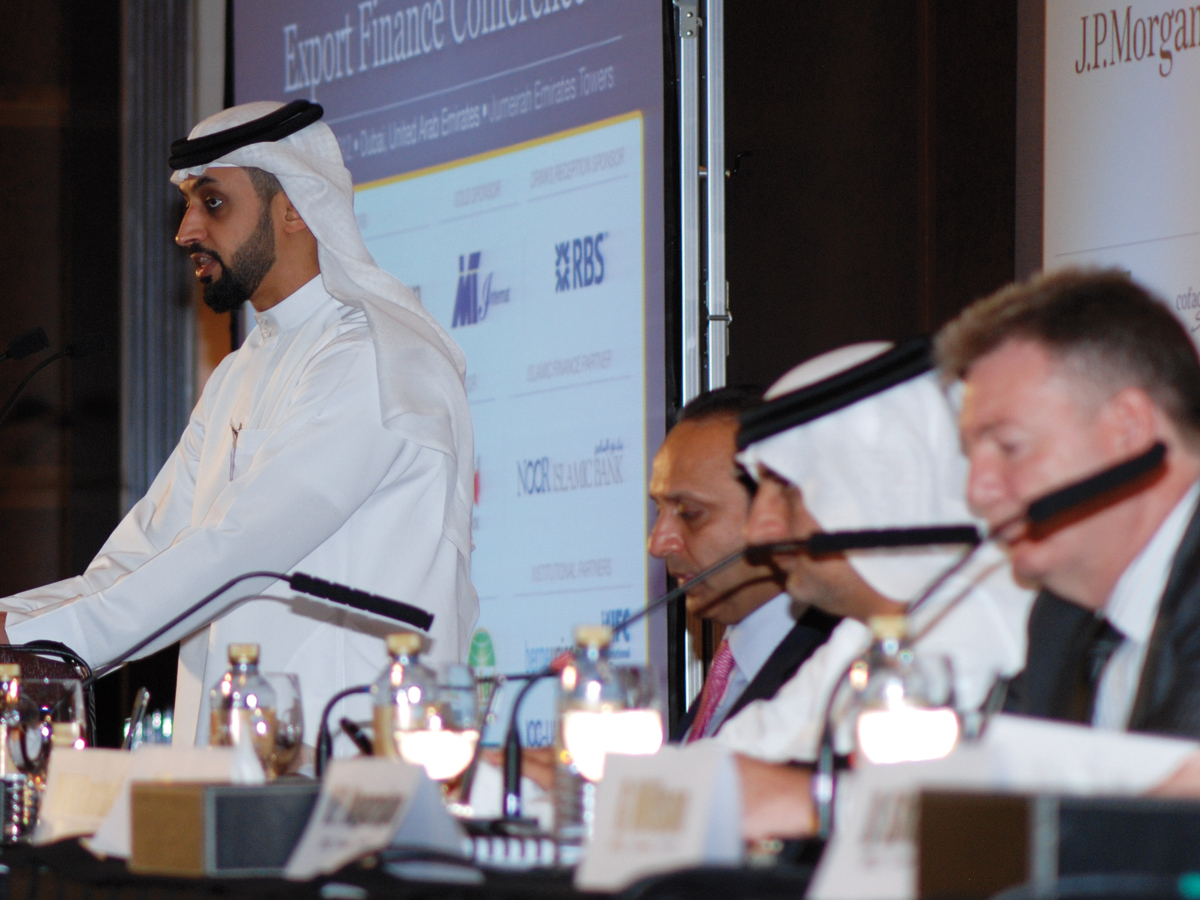The heightened role of Dubai as a gateway for international trade was up for discussion at GTR’s annual Middle East trade and export finance conference.
Despite concerns surrounding Dubai’s level of indebtedness, the mood at Exporta’s annual Middle East conference held in mid-February was fairly upbeat.
Speaking at the conference, Mahmood Al Bastaki, director, Dubai Trade, told delegates how international perception of Dubai as a good place to do business has improved, citing World Bank research.
The multilateral’s Doing Business Report 2012 has for the third year in the row ranked the UAE as the number one country in the Middle East and North Africa for enabling cross-border trade.
Al Bastaki gave statistics showing that the UAE’s international ranking in terms of the ease of doing business in the region has risen from 24 in 2008 to 5 in 2012.
However, he urged the trade finance sector not to become complacent, saying there was still an urgent need to reduce the time it takes to process trade documents in the region.
He gave the example that if the letter of credit-related processing time is reduced to one day in the UAE, then its World Bank-assigned trading across borders rank would move from fifth to third place.
He made the comparison with Asian trade hubs, saying that in the UAE, traders spend three days or 75% of their time completing letter of credit formalities whereas in Singapore and Hong Kong it takes less than one day.
The rest of the conference followed a similar theme of how to make Dubai an even more attractive place to do business.
There were a number of presentations outlining new initiatives or products aimed at making trade faster and easier.
Claire Buchanan, senior vice-president, global operations from Bolero, gave a talk on a landmark transaction concluded with RBS last year where a trade deal with BNP Billiton involved the fully electronic presentation of documents required under a letter of credit. The transaction was processed on the Bolero system.
The deal illustrated that LC presentations can be processed electronically end-to-end from the nominated bank to the issuing bank. Buchanan is hopeful the solution will attract the interest of Middle Eastern banks and corporates.
In the week of the conference, Dubai Multi Commodities Centre (DMCC) launched its DMCC Tradeflow, a new electronic system that brings all parties involved in inventory-based financing together.
Via the platform, owners of goods stored in rated warehouses in the UAE can ask warehouse keepers to issue Tradeflow warrants, which represent the ownership of their goods.
These warrants can be used by the owners as a form of collateral to access working capital from banks.
Ahmed Sultan Bin Sulayem, executive chairman at the DMCC provided the conference keynote speech, taking the opportunity to outline DMCC’s services.
Other key topics included the need for more trade financing to small and medium-sized businesses in the region.
James Finucane, manager, project finance, Emirates Steel provided delegates an insight into the corporate side of the trade and project finance business, outlining the need for banks to stick by their clients in the tough times as well as the more buoyant times.
Finucane told delegates about the continued expansion of the Emirates Steel plant. Emirates Steel is a direct subsidiary of Abu Dhabi Basic Industries Corporation, which in turn is wholly-owned by the General Holding Corporation, a 100% government-owned entity.
Phase II of the steel plant expansion project featured US$733mn of conventional commercial debt, a US$367mn Islamic tranche and a US$500mn portion backed by the Italian export credit agency Sace.
The company is now looking to raise financing for phase III of the project, but due to the reduced availability of long-term financing in the market, Finucane told delegates that ECA involvement is key in generating liquidity for these kinds of long-term project financings. GTR







